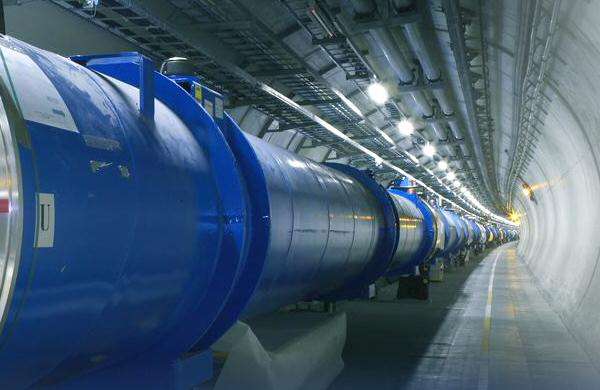
As the September 10 launch of the world’s greatest ever particle physics experiment nears, CERN controllers have assured the public of the safety of the experiment, even as the Large Hadron Collider is poised to become the world’s most powerful particle accelerator.
Though actual collisions aren’t expected to occur until October, Wednesday’s injection of the beam of protons around a 27 km (17 mi) tunnel on the French/Swiss border will be the culmination of 15 years of planning and many more of theory as the accelerator searches for answers related to the beginning of our universe, just a split second after the Big Bang.

Scientists will use the collision of the proton beams to hopefully lead them to the elusive Higgs boson, a theoretical elementary particle, an idea of the difference between matter and anti-matter and a better understanding of the beginnings of time.
Scientists are also hoping the collisions will forge miniature black holes that will almost immediately vanish. However, it is this function of the collider that has caused the most public consternation, even triggering death threats for scientists.
James Gillies, the LHC head of public relations has said he has received a number of calls from people asking him to halt the experiment worried that the safety of the Earth is at stake. He said that many have begged the team to stop the futuristic research while others have taken an angrier stance.
“There are a number who say: ‘You are evil and dangerous and you are going to destroy the world.’ I find myself getting slightly angry, not because people are getting in touch but the fact they have been driven to do that by what is nonsense. What we are doing is enriching humanity, not putting it at risk,” he said to Daily Tech.
CERN scientists have reiterated that the collider is not in danger of creating a deadly black hole and point out that cosmic rays that slam into the Earth on a daily basis deliver more powerful particle collisions.
An updated study from the LHC Safety Assessment Group has concluded: “Nature has already conducted the equivalent of about a hundred thousand LHC experimental programmes on Earth - and the planet still exists.”
Scientists insist that while the collider is capable of creating black holes, they would be miniscule and incapable of growing. “Each collision of a pair of protons in the LHC will release an amount of energy comparable to that of two colliding mosquitoes, so any black hole produced would be much smaller than those known to astrophysicists.”
The launch of Wednesday’s historic experiment will be shown on Web cam here.
No comments:
Post a Comment